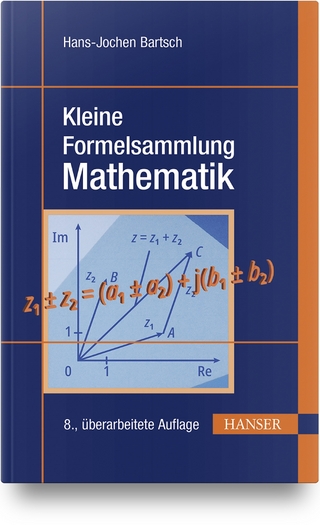The Early Period of the Calculus of Variations
Springer International Publishing (Verlag)
978-3-319-38944-8 (ISBN)
The authors begin in 1697 with Johann Bernoulli's work on the brachystochrone problem and the events leading up to it, marking the dawn of the calculus of variations. From there, they cover key advances in the theory up to the development of Lagrange's d-calculus, including:
- The isoperimetrical problems
- Shortest lines and geodesics
- Euler's Methodus Inveniendi and the two Additamenta
Finally, the authors give the readers a sense of how vast the calculus of variations has become in centuries hence, providing some idea of what lies outside the scope of the book as well as the current state of affairs in the field.
This book will be of interest to anyone studying the calculus of variations who wants a deeper intuition for the techniques and ideas that are used, as well as historians of science and mathematics interested in the development and evolution of modern calculus and analysis.
Preface.- Some Introductory Material.- The Brachystochrone Problem: Johann and Jakob Bernoulli.- Isoperimetrical Problems: Jakob and Johann Bernoulli.- Shortest Lines and Geodesics.- Euler's Memoirs of 1738 and 1741.- Euler's Method us Inveniendi.- Lagrange's d-Calculus.- Bibliography.- Index of Names.- Subject Index.
"The book presents an accurate description of the ideas and methods developed to face the first variational problems, essentially from the Brachistochrone in the seventeenth century to the very first years of the nineteenth century, covering overall a little more than a century. ... The book is the result of the fruitful cooperation between a specialist in the history of sciences and a well-known researcher in the Calculus of Variations ... ." (Arrigo Cellina, Mathematical Reviews, May, 2017)
"The authors succeeded in adding a very valuable book to the literature available on the history of the calculus of variations. The book is full of the mathematics of the masters and the authors have taken pain to clarify even the details in nowadays mathematical notations." (Thomas Sonar, zbMATH 1350.01001, 2017)
| Erscheinungsdatum | 08.10.2016 |
|---|---|
| Zusatzinfo | XII, 293 p. 59 illus. |
| Verlagsort | Cham |
| Sprache | englisch |
| Maße | 155 x 235 mm |
| Themenwelt | Mathematik / Informatik ► Mathematik ► Allgemeines / Lexika |
| Mathematik / Informatik ► Mathematik ► Analysis | |
| Mathematik / Informatik ► Mathematik ► Angewandte Mathematik | |
| Mathematik / Informatik ► Mathematik ► Geschichte der Mathematik | |
| Schlagworte | Brachystochrone Problem • Calculus of Variations • Calculus of Variations and Optimal Control • History of mathematical sciences • infinitesimals • Isoperimetric Problems • Jakob Bernoulli • Johann Bernoulli • Lagrange's delta-Calculus • Leonhard Euler • mathematics and statistics • Optimization |
| ISBN-10 | 3-319-38944-0 / 3319389440 |
| ISBN-13 | 978-3-319-38944-8 / 9783319389448 |
| Zustand | Neuware |
| Haben Sie eine Frage zum Produkt? |
aus dem Bereich




